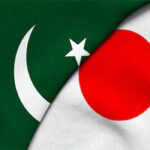UNITED NATIONS, Mar 9 (APP):With 28 million Afghan people facing abject poverty, Pakistan has warned against ending or curbing humanitarian assistance to Afghanistan, saying it would be “morally wrong and politically counter-productive.”
“Halting or reducing humanitarian assistance would hurt the very people — men, women and children — whose human rights the international community seeks to uphold,” Ambassador Munir Akram told the UN Security Council on Wednesday.
Speaking in a debate on the situation in Afghanistan. the Pakistan envoy therefore called for the full funding of the UN Secretary-General’s $4.2 billion recovery plan for the country.
Voicing deep concern over recent developments, he joined others in expressing disappointment over further restrictions placed on the rights of Afghan women and girls, and hoped that the Afghan interim government will find a solution to those issues in line with Islamic injunctions.
Ambassador Akram said that a more comprehensive international effort was required to revive the Afghan economy and its banking and financial sector as well as implementation of the several shovel-ready “connectivity” projects.
Expressing major concern over the terrorist attacks within and from Afghanistan, he said that Pakistan has, in recent months, endured a series of such terrorist attacks emanating from externally-funded TTP and from other terrorist outfits in that country..
“The Afghan interim government has repeatedly assured us, and others, that Afghanistan’s territory will not be used for terrorism against neighboring countries, including Pakistan,” the Pakistani envoy said, adding it needs to do more to fulfill these assurances.
Despite the challenging environment, he said, Pakistan believes that continuing engagement with the Afghan interim government was the best means to achieve the international community’s objectives for the observance of human rights, especially women’s rights, inclusive governance, and an end to terrorism within and from Afghanistan.
Afghanistan’s immediate neighbours need to move in concert in the efforts to restore normalcy and stability in Afghanistan, he said, noting that the OIC also has a vital role in the effort.
In this regard, Ambassador Akram called for the lifting of sanctions, including, as a first step, the restoration of travel ban exemptions.
He also expressed hope that the anomaly of Afghanistan’s United Nations representation can soon be addressed. Afghanistan is still represented by an appointee of the country’s defunct regime of President Ashraf Ghani.







